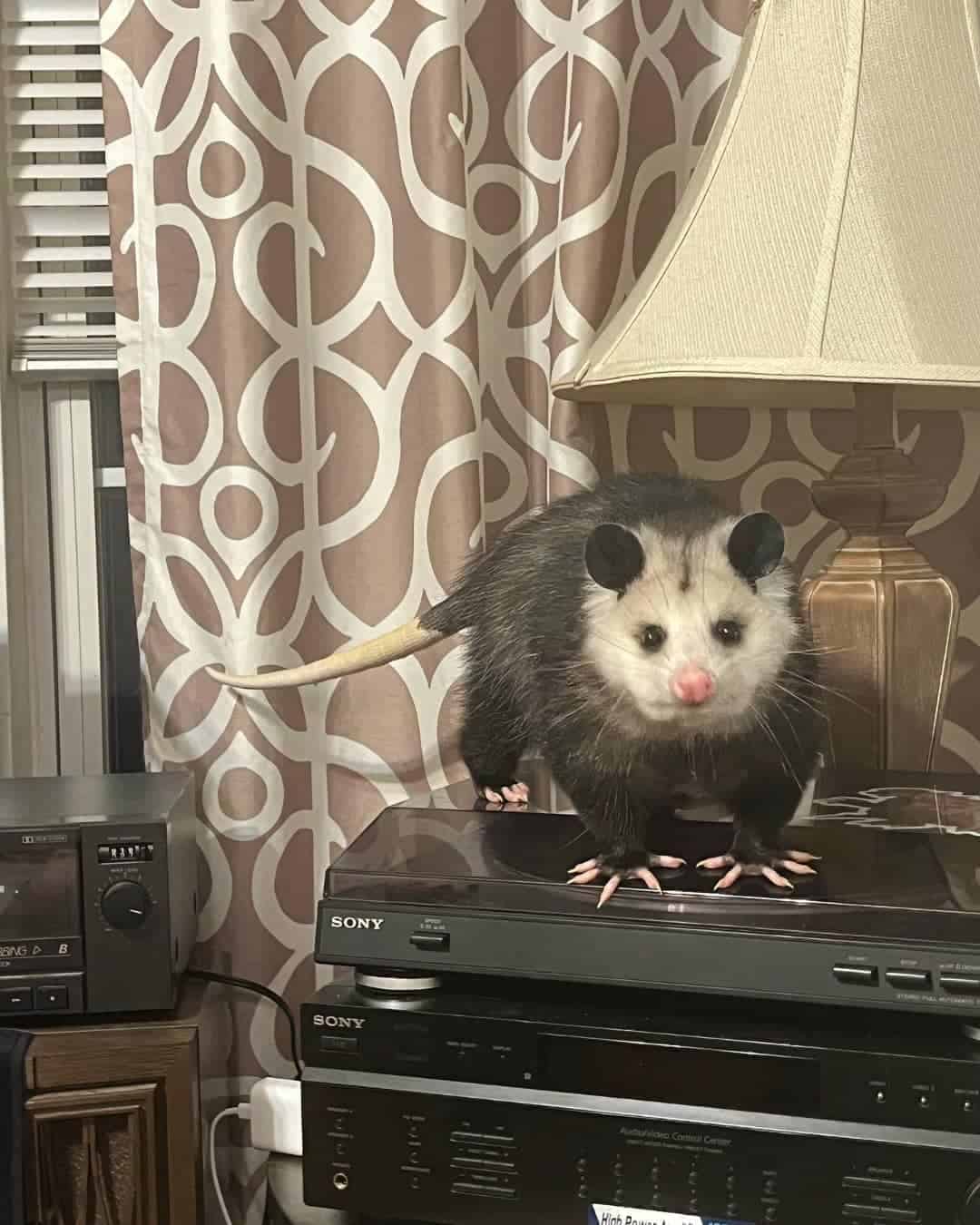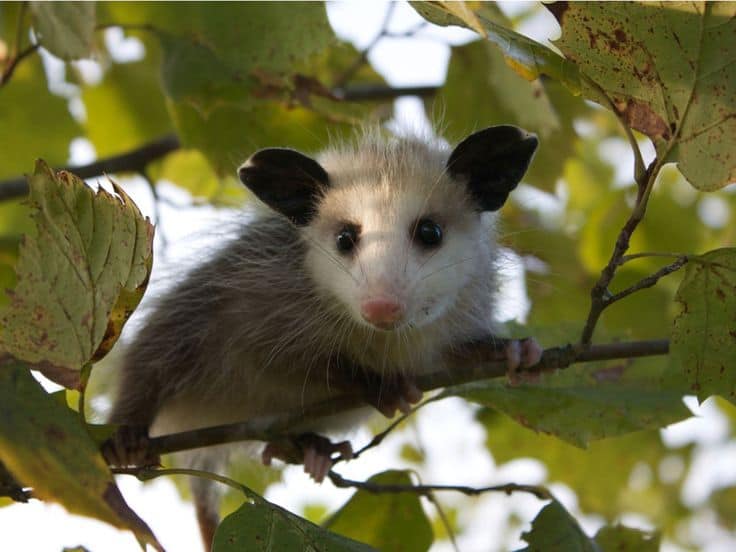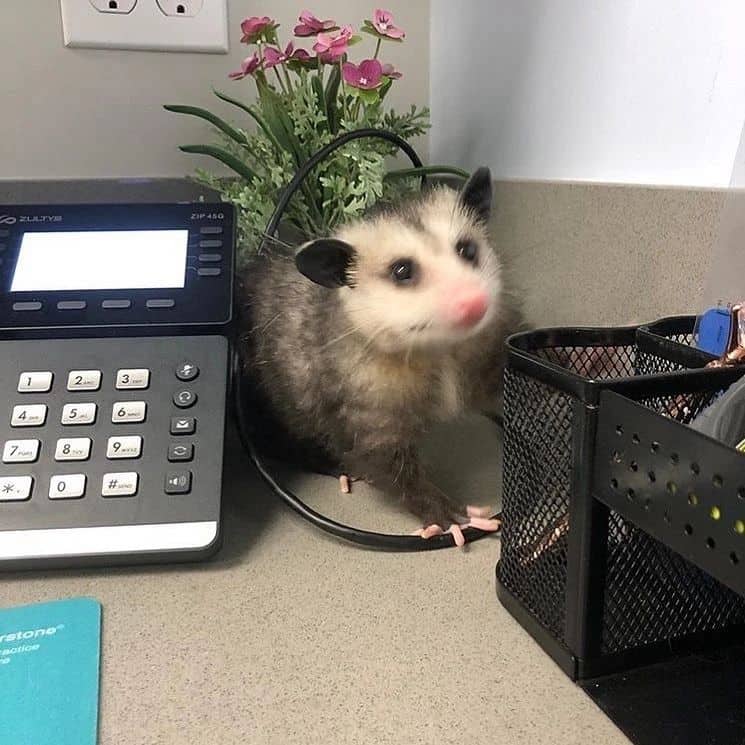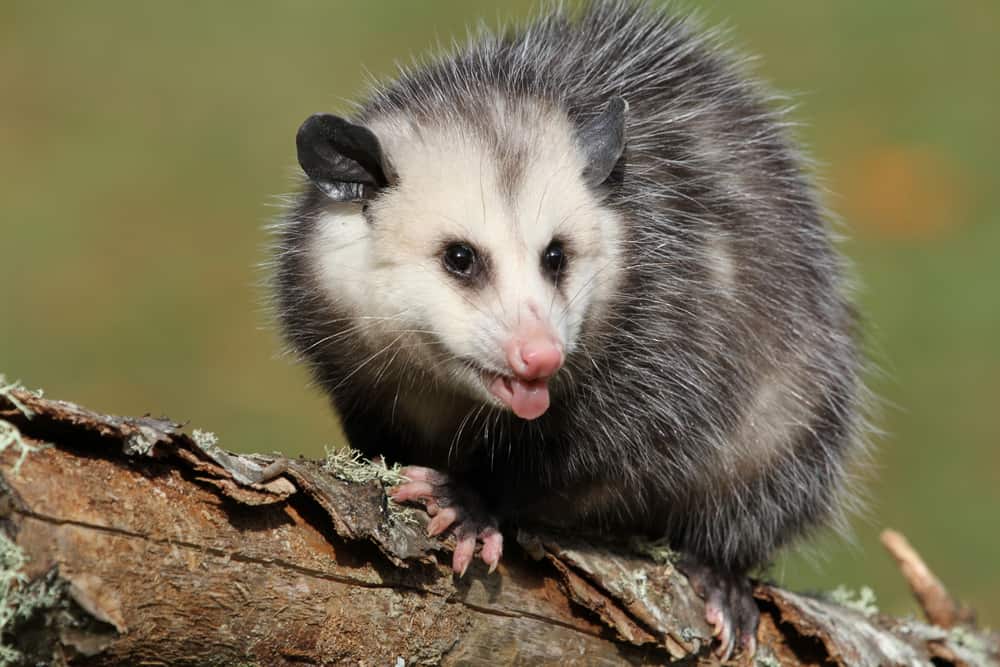Do you suspect possums live in your basement, garage, or attic? Learning about the sounds possums make can help you identify and locate them on your property.
Possums or opossums are nocturnal marsupials related to the kangaroo and koala. While most people often use the terms “possums” and “opossums” interchangeably, they have different meanings.
The term “possum” refers to species from Australia, New Zealand, and Tasmania. Conversely, “opossum” applies to North and South American species.
Some individuals consider these creatures a nuisance, especially in regions with high possum populations. However, they offer natural pest control by killing and eating insects, mice, rats, snails, frogs, and other pests.
Even though possums are active at night, they are naturally quiet animals. They only make sounds when they feel threatened or mating.
If you wish to learn more about opossum noises, continue reading below…
Understanding Common Possum Sounds
In their wild habitat, these omnivore creatures love feeding on insects, small mammals, fruits, and flowers. They also love eating Eucalyptus leaves, especially the Ringtail possum and Brushtail possum (Trichosurus vulpecular).
However, possums that live near urban areas are scavengers that love raiding garbage bins for leftover foods at night. People consider them pests since they scatter trash outside and inside homes and make their nests in dirty basements, garages, and attics.
Possums rarely make any noise when they are alone. Nevertheless, they produce a variety of sounds, including growling and hissing.
1. Growling
Possums or opossums often growl when looking for mates during the breeding season. They also make a low growl when threatened or fighting over territory.
When growling, possums usually display aggressive behaviors, like physical posturing and baring teeth. If you encounter a possum making such sounds, keep your distance.
2. Hissing
Hisses mean the possums feel threatened. They make this sound to frighten off predators, such as foxes, large dogs, or bobcats. Hissing also helps to warn other opossums of potential threats.
At first, the animal might start with a low hiss. But if the threat persists, the hissing may get louder until it becomes a growl. Through hissing, the creatures can communicate that they are not to be messed with and avoid confrontations.
Male possums also hiss to attract females (jills).
3. Screaming/Screeching
Opossums often scream or screech when in distress, scared, or intimidated. The high-pitched screams are disturbing and can be heard from a distance.
The screams are usually heard during mating when two male opossums come across one another (when competing for mates). Also, it’s common to hear these loud noises when a male tries to mate with a pregnant female.
4. Sneezing
Young opossums or joeys often make a “choo-choo” or sneezing sound when separated from their mother. Sometimes, the mother possums get separated from her babies when foraging at night.
The sneeze helps the young ones attract their parent attention, especially when in danger or hungry. It’s also a way for the joeys and their mother to communicate.
It’s common to hear this sound throughout the year since female possums mate twice annually. That means, some possums can raise a litter of 6-25 young ones, twice within 12 months.
Once the young opossums get too big for their mother’s pouch, the mother will carry them on her back. Baby opossums are quiet, but it’s normal for them to hiss at each other when fighting for the best spot on their mother’s back.
5. Clicking
Oftentimes, you might hear opossums making clicking noises. Female opossums make these sounds when calling for their babies or communicating with them. The clicks also help females call for male possums for mating.
If you hear these sounds in your ceiling or attic, stay away. If the mother possum considers you a threat, she can become aggressive and might try to attack you.
6. Chirping
Chirping is one of the most common opossum sounds produced by baby opossums. The sound resembles a high-pitch bird chirping, and it helps the mother and babies communicate.
Why Do Possums Make Noises?

1. Protection of young ones
Possums might seem like timid creatures, but that changes when it comes to their kids. When threatened, possums make loud, scary growling and hissing sounds that can frighten off predators. As a result, the aggressive noises help them keep their babies safe.
2. Territorial behavior
Australian possums are territorial creatures. This holds, especially for species from the family of common brushtail possums. Males mark their territory using urine and secretion from the scent gland on their anus, chest, and chin. Besides that, they might fight and use screaming or growling voices to intimidate or scare off other males and predators.
3. Mating
Most possum species breed once at the end of fall, but brushtail possums can breed twice within 12 months. The secondary mating season begins in spring. During the breeding seasons, males are usually vocal. They produce clicking and chattering sounds to attract the attention of potential mates.
4. Defense Mechanism
These animals also hiss, grunt, or growl to appear more threatening to predators. Sometimes, the possum opens its mouth, revealing its many teeth. However, if the predator does not back off, the possum might involuntarily enter a state of catatonia out of fear (playing dead). In this state, its body goes limp, its tongue sticks out, it drools, and its breathing appears to stop. This defense mechanism confuses the attacker and allows the cunning animal to escape.
What To Do If You Detect Possums Sounds Within Your Property?
Possums pose no threat to humans. Sure, the noises and movements in the attic, roof, or ceiling are disturbing. But they can help eliminate rats, cockroaches, ticks, and other bothersome vermin in your home.
Furthermore, it’s illegal to capture or kill these animals. They are protected by state and federal law. In states like Alabama, property owners are required to get permits before trapping or moving more than one possum.
In Australian states like New South Wales (NSW), a homeowner must apply to the Office of Environment and Heritage (OEH) to get a permit to trap a possum.
But what if you’re dealing with a possum infestation?
In this case, it’s best to call wildlife control professionals. They have the experience and tools to capture and relocate these animals without hurting them.
How To Protect Your Property from Possums?

Moving opossums outside their home ranges is not a long-term solution. Another possum will probably move into the territory within a few weeks. If you want to shield your home from these scavengers, employ these few tactics.
1. Eliminate attractants
These animals usually move into homes with lots of food and water sources. Therefore, it’s crucial to keep pet food and birdseed stored securely. Also, avoid living food out overnight and pick up fallen fruits from trees in your garden.
2. Secure garbage and compost bins
Discourage possums from camping on your property by securely sealing garbage and compost bins.
3. Block entry points
Like rats and raccoons, possums can squeeze their bodies through small openings. Look for potential entry points around your home, like chimneys, cracks, vents, holes, and gaps, and seal them. Ensure your check seals around cables and pipes to prevent unwanted trespassing.
4. Use repellents
Certain scents and tastes can prevent opossums from entering your garden or home. Place natural repellents, like vinegar, ammonia, and hot peppers around your property. You can also opt for commercial repellants or install metal grates or wire mesh over potential entry points.
5. Install a fence
A fence can deter possums from entering your property. But make sure you bury the fence one foot inside the ground, since these animals can dig under it.
6. Use Nest Boxes
If you just want the possum outside your roof or ceiling, you can put up nest boxes in your garden. These boxes will offer them shelter and protection from predators.
7. Set Traps
If repellents fail, set up live and friendly traps baited with vegetables, fruits, and other foods. Ensure you adhere to local laws when trapping and moving the possum to avoid legal trouble. If you are unsure of how to handle the possum, hire professionals.
These ways will allow you to protect your home and promote the safety and well-being of possums.
Importance of Understanding Possum Sounds

1. Pest control
Possum infestation means property destruction, frequent disturbing noises, unpleasant smells, and urine stains. Learning about their sounds allows you to identify them when they are crawling around your property. That means you can get rid of them before they become a nuisance.
2. Wildlife Conservations
If you are a wildlife enthusiast, this knowledge can be useful in your conservation efforts. You will better understand possums’ behavior and habit. Besides, it will aid you in creating effective possum management and conservation strategies.
Conclusion
Possums are fascinating creatures that produce various distinct sounds, each with its unique purpose.
For example, male possums make clicking sounds to attract the attention of females. Similarly, baby possums sneeze and chirp to call for their mother. Possums also use their sounds to defend themselves and their territory from predators and intruders.
If this animal has taken up residence in your basement, garage, attic, or roof, there’s no need to worry. You can live with a possum peacefully since they pose no threat. Plus, they can help you get rid of those pesky rodents and cockroaches.
But if you don’t roommates, you can hire a professional to trap and relocate it. Additionally, you can erect a fence or use repellents to prevent possums from entering your property.
Do you have questions about the sounds possums make? Tell us in the comment section below.
